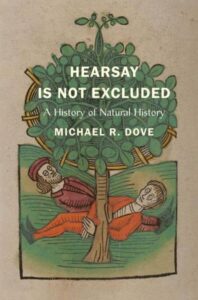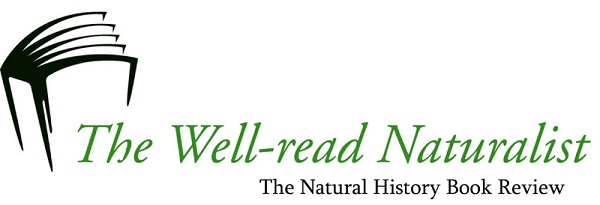 One of the things I have long loved most about the study of natural history, as well as its predecessor natural philosophy, is the holistic way it was approached by those investigating and writing about it. Yes, it’s true that the farther back one reaches into the history of these studies, the more things that are now known to be factually incorrect – either as the result of observational error, or because they were originally drawn from folklore or mythology – are found. However the underlying motivation was universally one of seeking to understand how the myriad forms of life, the cycles of it upon the planet, the dynamics of the planet itself, and the cosmos beyond it as well all worked within a single, intelligible system – if only it could be sufficiently perceived, interpreted, and explained.
One of the things I have long loved most about the study of natural history, as well as its predecessor natural philosophy, is the holistic way it was approached by those investigating and writing about it. Yes, it’s true that the farther back one reaches into the history of these studies, the more things that are now known to be factually incorrect – either as the result of observational error, or because they were originally drawn from folklore or mythology – are found. However the underlying motivation was universally one of seeking to understand how the myriad forms of life, the cycles of it upon the planet, the dynamics of the planet itself, and the cosmos beyond it as well all worked within a single, intelligible system – if only it could be sufficiently perceived, interpreted, and explained.
With the increase in specialization in both the sciences as well as the humanities, this belief in a comprehensive understanding diminished, as did the communication between those in the emergent, more strongly delineated fields of science, and particularly in regard to those wholly outside of it. While remarkable discoveries have been achieved from this modern strongly compartmentalized paradigm, it has also lead to a paucity of cross-pollination, as it were, from other now equally enclosed fields, the diminishment of which may now be being realized in unexpected and troublesome ways.
In his new book Hearsay Is Not Excluded; A History of Natural History, Prof. Michael R. Dove takes up the histories of four representative natural historians from the previous four centuries – Georg Eberhard Rumphius (seventeenth century), Carl Linnaeus (eighteenth century), Alfred Russel Wallace (nineteenth century), and Harold C. Conklin (twentieth century) – to examine how their own studies were undertaken in times and socio-cultural circumstances when crossing today’s more fortified boundaries was not only allowed but expected. He then goes on to propose “that the modern environmental crisis and rise in science skepticism codeveloped with the rise of ever narrower scientific disciplines.” It’s a bold assertion, to be sure, but one very much worth following Prof. Dove in his explanations to understand in its entirety.
It is also worth noting that this new book is part of the Yale Agrarian Studies Series, a series that began in 2000 with the publication of Prof. Tamara L. Whited‘s Forests and Peasant Politics in Modern France and now numbers some sixty-eight volumes, including Prof. Dove’s 2021 book Bitter Shade; The Ecological Challenge of Human Consciousness.
